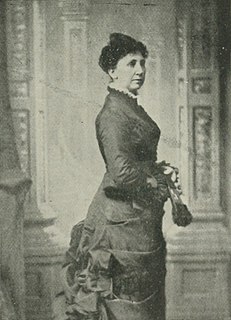A Quote by Dean Koontz
Each reader needs to bring his or her own mind and heart to the text.
Related Quotes
I want each poem to be ambiguous enough that its meaning can shift, depending on the reader's own frame of reference, and depending on the reader's mood. That's why negative capability matters; if the poet stops short of fully controlling each poem's meaning, the reader can make the poem his or her own.
Always man needs woman for his friend. He needs her clearer vision, her subtler insight, her softer thought, her winged soul, her pure and tender heart. Always woman needs man to be her friend. She needs the vigor of his purpose, the ardor of his will, his calmer judgment, his braver force of action, his reverence and his devotion.
We must be forewarned that only rarely does a text easily lend itself to the reader's curiosity... the reading of a text is a transaction between the reader and the text, which mediates the encounter between the reader and writer. It is a composition between the reader and the writer in which the reader "rewrites" the text making a determined effort not to betray the author's spirit.
The power of a text when it is read is different from the power it has when it is copied out. Only the copied text thus commands the soul of him who is occupied with it, whereas the mere reader never discovers the new aspects of his inner self that are opened by the text, that road cut through the interior jungle forever closing behind it: because the reader follows the movement of his mind in the free flight of day-dreaming, whereas the copier submits it to command.
Brigan was saying her name, and he was sending her a feeling. It was courage and strength, and something else too, as if he were standing with her, as if he'd taken her within himself, letting her rest her entire body for a moment on his backbone, her mind in his mind, her heart in the fire of his. The fire of Brigan's heart was astounding. Fire understood, and almost could not believe, that the feeling he was sending her was love.
Illustrations have as much to say as the text. The trick is to say the same thing, but in a different way. It's no good being an illustrator who is saying a lot that is on his or her mind, if it has nothing to do with the text. . . the artist must override the story, but he must also override his own ego for the sake of the story.
And so, when I began to read the proffered pages, I at one moment lost the train of thought in the text and drowned it in my own feelings. In these seconds of absence and self-oblivion, centuries passed with every read but uncomprehended and unabsorbed line, and when, after a few moments, I came to and re-established contact with the text, I knew that the reader who returns from the open seas of his feelings is no longer the same reader who embarked on that sea only a short while ago.
We need each other to do things that we can't do for ourselves. If we are intimately connected with each other, we just give things to each other; if we don't know each other we find another way to handle it. If you think about it, each according to his or her abilities and each according to his or her needs is sort of the same thing as supply and demand.
His heart beat faster and faster as Daisy’s white face came up to his own. He knew that when he kissed this girl, and forever wed his unutterable visions to her perishable breath, his mind would never romp again like the mind of God. So he waited, listening for a moment longer to the tuning fork that had been struck upon a star. Then he kissed her. At his lips’ touch she blossomed like a flower and the incarnation was complete.
By his own will Christ was dependent on Mary during Advent: he was absolutely helpless; he could go nowhere but where she chose to take him; he could not speak; her breathing was his breath; his heart beat in the beating of her heart.... In the seasons of our Advent - waking, working, eating, sleeping, being - each breath is a breathing of Christ into the world.



































